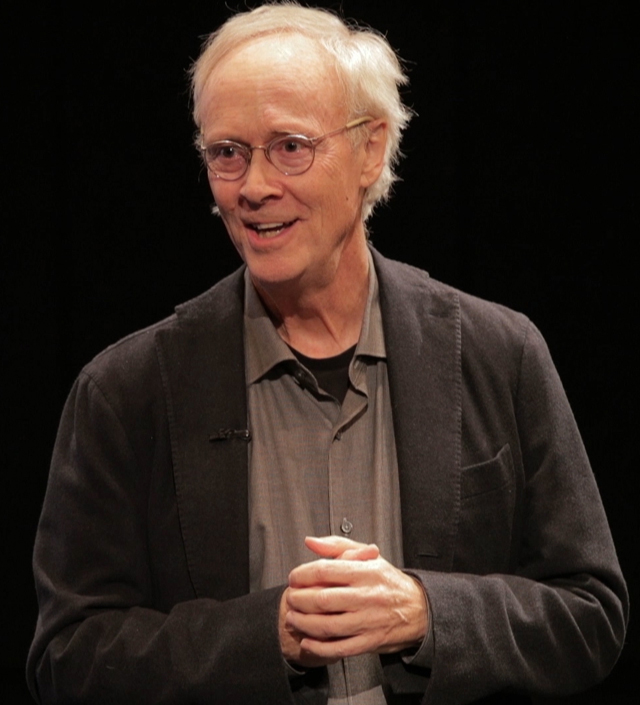Like so many other people who have left jobs sooner than expected, I was terrified at the prospect of losing a steady paycheck. But finding myself at a career crossroads, I saw an opportunity. My husband, Ken, and I had always wanted to live overseas together. Free from obligations, we could finally follow this dream.
Our plan was to rent our Brooklyn, New York, townhouse for three months and downsize to smaller quarters in rural France. We would explore new vistas and eat better but manage with fewer belongings and give up various creature comforts. Our most important goal was to experience French life through the eyes of the locals rather than as the tourists we had previously been. We would shop in open-air markets, cook with seasonal ingredients and communicate with people in their own language.
To prepare, Ken enrolled in an elementary French class at Baruch College, and I worked my way through lessons 1 through 80 of the “Coffee Break French” podcasts.
After searching homesharing websites, we rented a former winemaker’s cottage in the Loire Valley that sounded idyllic. A high-speed internet connection there would make it possible to continue my work as a writer. We spent several months making various repairs and improvements to stage our Brooklyn house for a family from the Midwest who would live there while we were away. Their departure would coincide with our return.

Our French adventure was an education in language and culture, and the more foreign and unpredictable world of the newly emerged sharing economy. This term is broadly used to describe online transactions in which peers swap or sell access to goods and services. We would be operating on both sides of the sharing economy. By listing our home on sites like those operated by Airbnb, HomeAway and SabbaticalHomes, we could reach a broad audience of potential renters. As travelers, we could use the same sites to rent housing anywhere in the world.
These companies charge homeowners, renters, or both, for use of the technology they have developed – known as the platform. Price structures vary and are subject to change, but they were nominal relative to what we stood to earn.
The sharing economy seemed like the perfect tool for what might either be a self-funded sabbatical or a new stage of life. But after a series of misadventures we realized that each deal involves elements of risk and trust. No matter how carefully both parties vet each other, you’re either lucky or not.
Almost from the moment we left home, nothing went according to plan. And when that happened, I took another risk: I wrote a book, without a publishing contract in hand.

It is a story not only about travel and the sharing economy but also about our most important transition yet. We are among the many baby boomers who have left traditional work arrangements, by choice or circumstance, prematurely — a function of technology, a prolonged economic downturn, physical decline or demographics. For longtime employees or others who expected to be rewarded for good work, losing one’s corporate “home” is a game-changer. So much of our identity and financial security has been linked to employment. With little or no leverage in the job market, we must rethink priorities and what we want to do with the rest of our lives. That might be 20 or 30 more years but not necessarily healthy ones. Suddenly there’s an urgency to cram as much in while we can.
We were a youth-oriented generation. And though many of us continue to feel young, now we are surrounded by external reminders that we’re not. At business meetings, if we are still going to them, we notice that we are by far the oldest person in the room. There, and in public places with a younger crowd, we don’t always feel welcome or even wanted. When doing FaceTime on our smartphones, Zooming, or posing for selfies, those screens are brutally honest about the force of gravity. Images of our younger selves exist only in old photos or in our minds. And yet there’s a significant bright spot: Just as boomers have had more life choices at earlier stages — about whether to marry or whether to have children, for example — they do at this one, too. While some of us are able to retire, others aren’t ready psychologically or financially.
More of us will choose an un-retirement, continuing to work in some capacity but most likely with a decline in earned income. By renting our house, we turned it into an additional source of revenue. Between career disruptions and this financial strategy, we let go of home in every sense of the word.
I wrote about the practical steps we took to do that and the emotional strain of letting strangers occupy our intimate space. Then, as locataires (the French word for tenants), we struck out into the vast unknown. We weren’t always comfortable with that, either. Our journey, filled with history, art, new tastes and local color, enriched us in surprising ways. It took us through the Loire Valley, to Basque Country and finally to Paris. Along that route we had a glimpse of a slower, more gracious lifestyle; witnessed a kinder, gentler approach to aging; and found that our efforts to speak the language opened many doors. Despite frequent power outages in the remote villages where we lived, Wi-Fi in all our lodgings enabled us to manage our finances and my business as well as communication with our family, from a distance.
If you are thinking of using your home to subsidize foreign travel, you’ll need to consider the specifics about how to do that. This kind of adventure will most likely result in visits to places not normally featured in guidebooks, as it did for us.
Though mine is a baby boomer’s perspective, I write for readers of all ages. I hope that Gen Xers and millennials will be persuaded that each life experience builds on the previous one, whether it was positive or negative. Others, who are already retired, on the verge of retiring or think they never will, can relate to the broader themes that motivated our journey and were a continuing subtext.
The road to reinvention, no matter what our age, is not easily charted. In her pioneering book, “Lean In: Women, Work, And the Will to Lead,” Sheryl Sandberg, the chief operating officer of Facebook, describes her career as “a jungle gym scramble” — a metaphor she attributes to Fortune magazine editor Pattie Sellers. “I could never have connected the dots from where I started to where I am today,” she writes. Going forward, that is likely to be true for many more of us. Not knowing what’s ahead can make us feel uneasy — or extremely anxious. One thing we can be sure of, though, is that nothing will happen while we are standing still. When we move away from the familiar, whether it is the workplace or a house that we have occupied for many years, possibilities that we might never have even imagined start to emerge. If you think change is hard — or never considered that your strong suit — make a list of at least three things you would still like to do. Then think expansively about how you can achieve at least one of those goals.
Life transitions, like foreign travel, are a curious mix of fantasy, experience and interpretation. I would do you a disservice, dear reader, by over-romanticizing our life in France. There were many bumps in the road.
As travelers who enjoy going off the beaten path, we have learned to embrace the unexpected. Our three-month sojourn led to a new way of life and persuaded us, once again, that anything is possible.
Deborah L. Jacobs is a long-time journalist and author. This article is an excerpt from her book “Four Seasons in a Day,” a memoir that chronicles her misadventures as she and her husband cook in quirky kitchens, struggle to speak French and shop in outdoor markets. Advisors interested in ordering bulk copies of the book to distribute to clients may contact Deborah at Deborah@deborahjacobs.com. To order a single copy of the book, click here.







